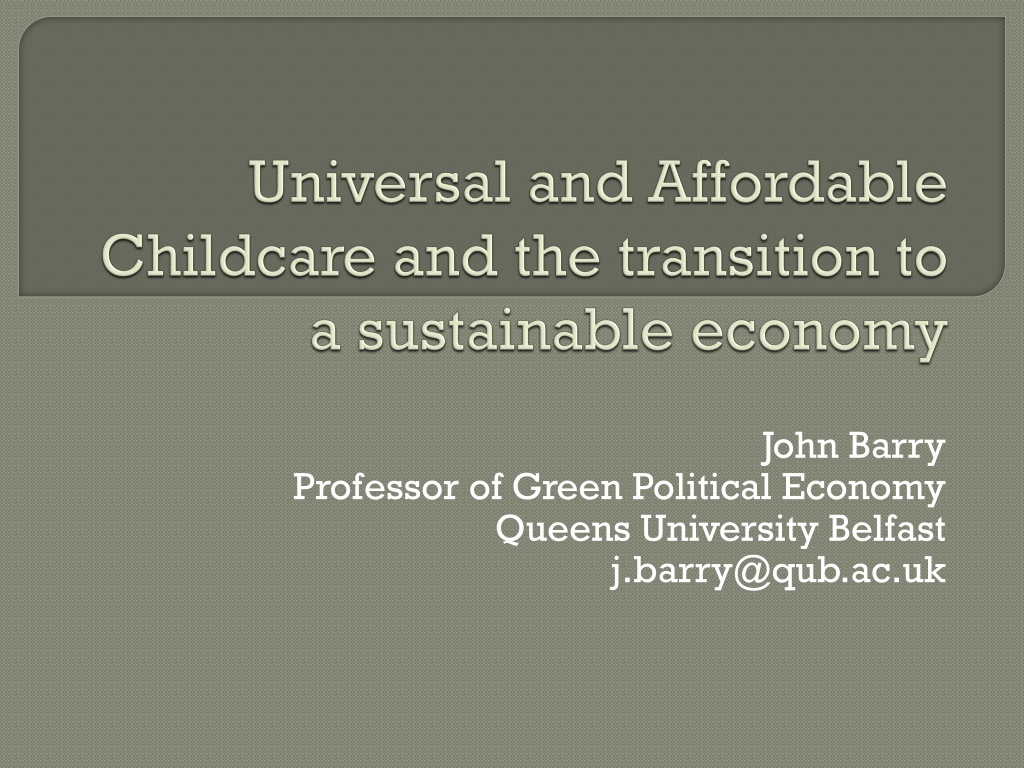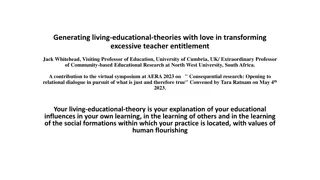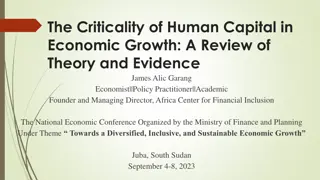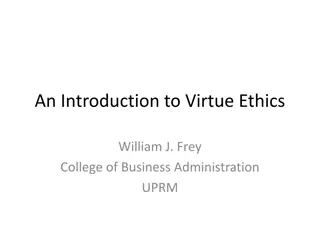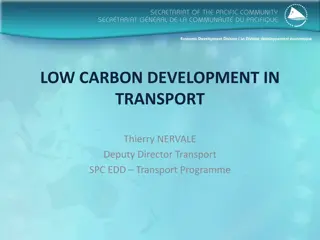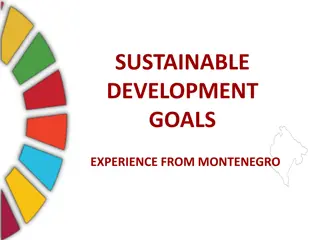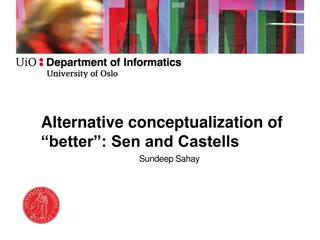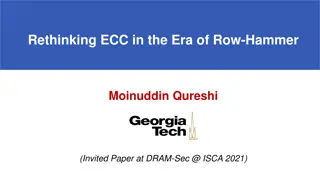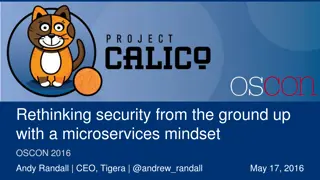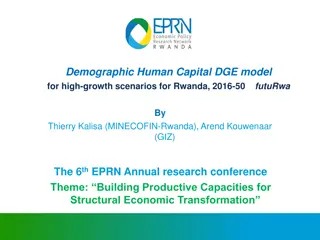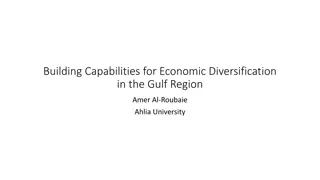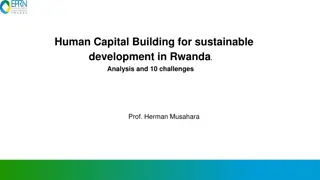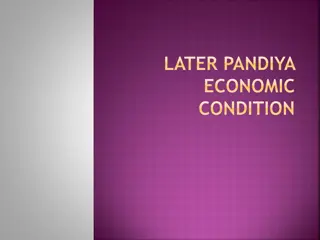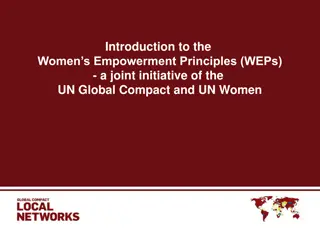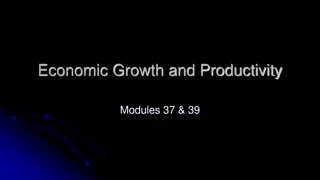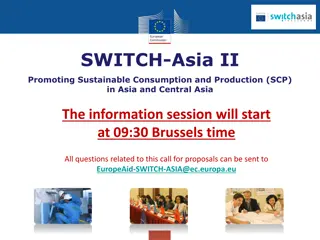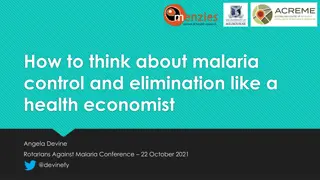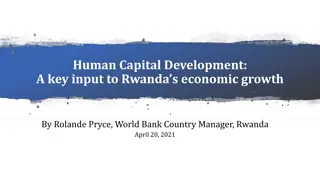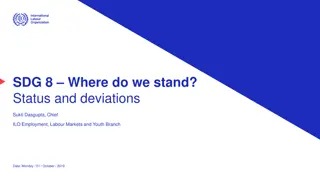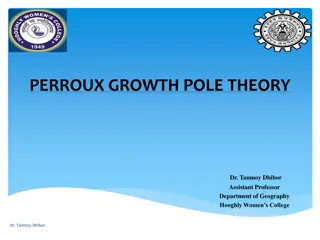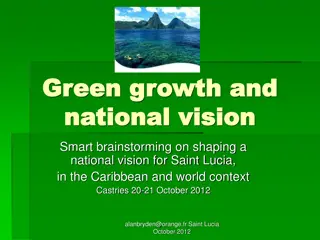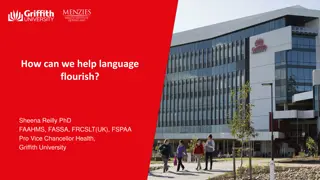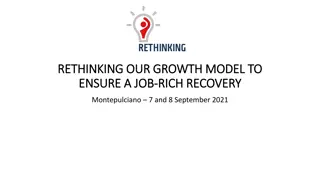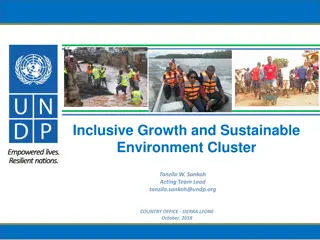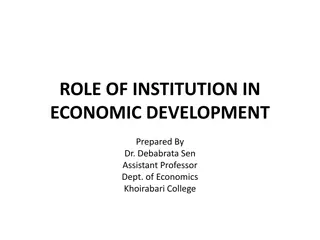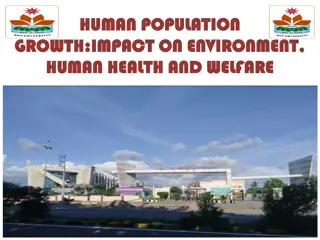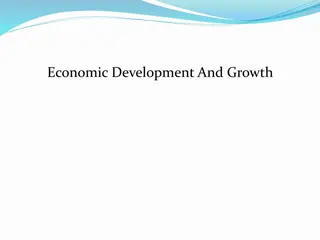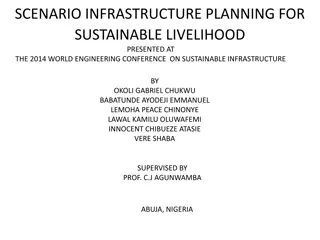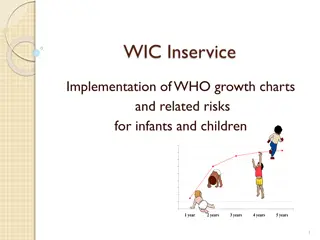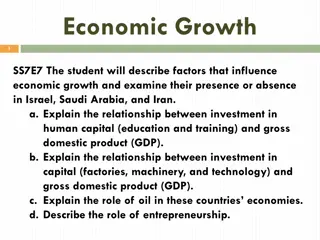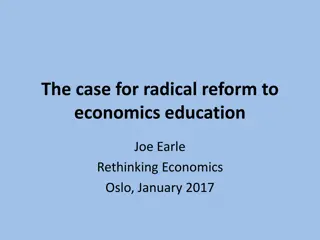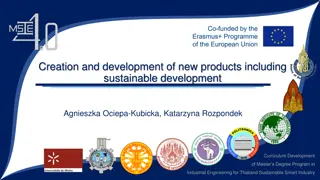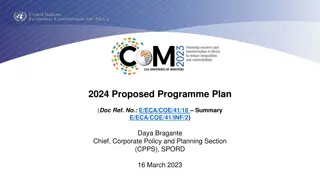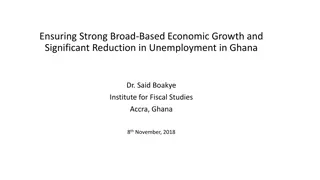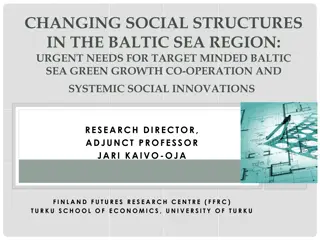Rethinking Economic Growth for Sustainable Human Flourishing
The discussion led by John Barry, a Professor of Green Political Economy at Queens University Belfast, challenges the traditional notion of economic growth as the ultimate measure of progress. It emphasizes the importance of investments in social and economic infrastructure, such as high-quality childcare, for the healthy development of children and society as a whole. The presentation delves into sustainability reasons, equality issues, and human flourishing beyond material wealth. It questions the current economic paradigm and advocates for a shift towards a more equitable, sustainable, and flourishing future.
Download Presentation

Please find below an Image/Link to download the presentation.
The content on the website is provided AS IS for your information and personal use only. It may not be sold, licensed, or shared on other websites without obtaining consent from the author. Download presentation by click this link. If you encounter any issues during the download, it is possible that the publisher has removed the file from their server.
E N D
Presentation Transcript
John Barry Professor of Green Political Economy Queens University Belfast j.barry@qub.ac.uk
GDP: Total expenditure on all goods and services produced within a country Adds to GDP: Also adds to GDP: Not included in GDP:
The costs of high quality childcare are investments in social and economic infrastructure. Investing in the healthy development of children brings benefits to society as a whole. It achieves gender equality goals It benefits children especially those from poorer families Together with proposals to reduce the working week, it is part of a new economic paradigm
Sustainability reasons climate change, energy insecurity, resource depletion and pollution; We don t inherit the earth from our parents, but borrow it from our children Equality reasons economic growth under capitalism manages and reproduces inequality it does not eradicate it; We are addicted to growth because we are addicted to large inequalities in income and wealth. What about the poor? Let them eat growth! Better yet, let them feed on the hope of eating growth in the future! (Herman Daly, 1991) Human flourishing reasons beyond a threshold, economic growth does not add to and can reduce opportunities for human flourishing.
Economic growth, for so long the great engine of progress, has, in the rich countries, largely finished its work. Not only have measures of well-being and happiness ceased to rise with economic growth but, as affluent societies have grown richer, there have been long-term rises in rates of anxiety, depression, and numerous other social problems. The populations of rich countries have got to the end of a long historical journey . Wilkinson, R and Pickett, K. (2009), The Spirit Level: why more equal societies almost always do better, pp.5 6.
We should measure progress in our society not by the size of our armies or GDP/economic growth But rather by how we look after our most vulnerable the old, the sick and the young Universal affordable childcare is a simple, understandable way to realise this sense of progress And is part of a policy agenda to create a less gender unequal, ecocidal, unsustainable and growth-obessed economic system, on which values work not just employment , and one where childcare is a form of employment , it is a well paid, high status occupation. The politics of childcare is part of the political economy of socio- economic progress and transformation for the 21st century part of policy mix to moving beyond bigger to better
